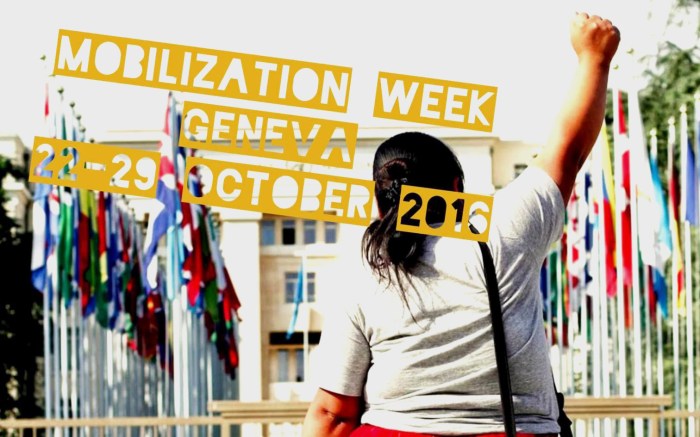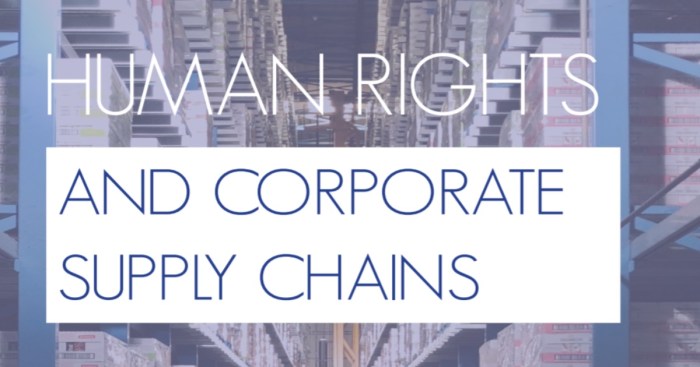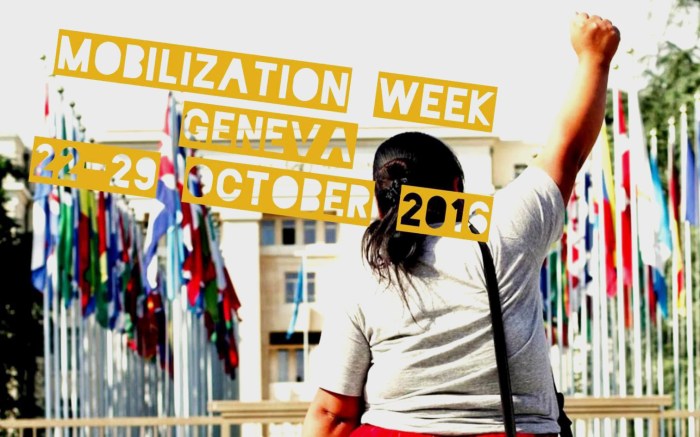
Corporations and Human Rights: A Global Responsibility
Corporations and human rights – a seemingly simple concept, yet one that carries immense weight in our interconnected world. Imagine a world where businesses are not just profit-driven entities, but also guardians of human dignity and fundamental rights. This is the ideal we strive for, but the reality is often a complex tapestry of ethical dilemmas and challenging realities.
This exploration delves into the intricate relationship between corporations and human rights, tracing its evolution from the industrial revolution to the present day. We’ll examine the principles and frameworks that guide corporate responsibility, the challenges of accountability, and the role of governments and international institutions in shaping a more ethical business landscape.
Case Studies of Corporate Human Rights Practices: Corporations And Human Rights

Corporate human rights practices are a complex and multifaceted issue, with companies operating in various sectors facing diverse challenges. Examining real-world case studies provides valuable insights into how companies navigate these challenges, the impact of their actions, and the evolving landscape of corporate responsibility.
Case Studies of Corporate Human Rights Practices
Understanding the nuances of corporate human rights practices requires examining specific case studies. The following table provides a glimpse into various industries and the human rights issues that companies have faced:
| Corporation | Industry | Human Rights Issue | Response |
|---|---|---|---|
| Apple | Technology | Working conditions in supplier factories in China, including allegations of forced labor, excessive overtime, and unsafe working environments. | Apple has implemented a Supplier Code of Conduct and audits its suppliers regularly. It has also partnered with organizations like the Fair Labor Association to improve working conditions in its supply chain. |
| Nike | Apparel and Footwear | Allegations of child labor and low wages in factories in Southeast Asia. | Nike has developed a comprehensive Code of Conduct for its suppliers and has invested in programs to improve working conditions and promote fair labor practices. |
| Chevron | Oil and Gas | Environmental pollution and human rights abuses in the Niger Delta, including oil spills and displacement of local communities. | Chevron has faced numerous lawsuits and allegations of negligence in its operations in the Niger Delta. The company has taken steps to address environmental concerns, but its efforts have been criticized by environmental groups and local communities. |
| Walmart | Retail | Allegations of labor exploitation and unsafe working conditions in its global supply chain. | Walmart has implemented a Global Responsibility Code and has partnered with organizations like the Fair Labor Association to improve working conditions in its supply chain. |
The Future of Corporate Human Rights

The field of corporate human rights is constantly evolving, shaped by emerging trends and challenges that demand innovative solutions and a more robust approach to governance. As globalization, technology, and climate change continue to reshape the global landscape, the responsibility of corporations to uphold human rights becomes increasingly complex and critical.
The Impact of Globalization, Technology, and Climate Change
Globalization, technology, and climate change are interconnected forces that have profound implications for corporate human rights. Globalization has expanded the reach of corporations, creating new opportunities but also exposing workers and communities to potential human rights abuses in global supply chains.
The rapid advancements in technology, particularly in artificial intelligence and automation, present both opportunities and risks for human rights. For instance, algorithmic bias can perpetuate discrimination, while surveillance technologies can be used to restrict freedom of expression and privacy. Climate change exacerbates existing inequalities and poses new challenges to human rights, particularly for vulnerable communities.
Potential Solutions and Strategies for Strengthening Corporate Human Rights Responsibility, Corporations and human rights
To address the challenges posed by these trends, a multifaceted approach is required, focusing on strengthening corporate human rights responsibility.
- Enhanced Due Diligence:Corporations must conduct thorough due diligence to identify and mitigate human rights risks throughout their operations and supply chains. This includes engaging with stakeholders, conducting human rights impact assessments, and developing effective grievance mechanisms.
- Transparency and Accountability:Increased transparency and accountability are crucial for ensuring that corporations are held responsible for their human rights impacts. This can be achieved through mandatory reporting requirements, independent audits, and robust legal frameworks.
- Multi-Stakeholder Collaboration:Effective corporate human rights governance requires collaboration among governments, businesses, civil society organizations, and other stakeholders. This can facilitate knowledge sharing, capacity building, and the development of shared standards and best practices.
- Empowering Workers and Communities:Corporations should prioritize empowering workers and communities by providing them with access to information, training, and grievance mechanisms. This can help to ensure that they have a voice in decisions that affect their lives and rights.
Designing a Framework for a More Effective and Comprehensive Approach to Corporate Human Rights Governance
A comprehensive framework for corporate human rights governance should incorporate the following elements:
- Clear and Binding Standards:Establishing clear and binding standards for corporate human rights responsibility is essential. This includes incorporating human rights principles into national and international laws, as well as promoting the adoption of voluntary guidelines and frameworks.
- Effective Enforcement Mechanisms:Robust enforcement mechanisms are necessary to ensure that corporations comply with human rights standards. This includes establishing independent oversight bodies, providing access to justice for victims of human rights abuses, and imposing sanctions for violations.
- Promoting Human Rights Education and Training:Investing in human rights education and training for corporate executives, employees, and stakeholders is critical for fostering a culture of human rights awareness and respect.
- Integrating Human Rights into Business Practices:Corporations should integrate human rights considerations into all aspects of their business practices, from sourcing and production to marketing and sales.
Corporations have a responsibility to uphold human rights, but their actions can have unintended consequences. One area where this becomes particularly clear is the impact of debt, which can have devastating effects on families and communities. The ripple effects of debt, especially on children, are significant and can lead to long-term hardship.
Learn more about the impact of debt on children and how we can work to address these issues. By holding corporations accountable for their actions and ensuring equitable access to resources, we can work towards a more just and sustainable future for all.
The relationship between corporations and human rights is a complex one, often intertwined with global politics. It’s a sobering reality that the US, through its foreign policy and military interventions, directly contributes to armed conflicts around the world, as detailed in this article.
These conflicts often create environments where corporations can exploit resources and labor, further exacerbating human rights abuses. It’s crucial to hold corporations accountable for their actions and to demand ethical practices in conflict zones.
The relationship between corporations and human rights is complex and often fraught with tension. While corporations are legally obligated to operate within the boundaries of human rights, their pursuit of profit can sometimes lead to violations. This tension was evident in the recent IMF and World Bank protests in Washington DC , where activists raised concerns about the impact of these institutions’ policies on marginalized communities.
Ultimately, addressing the ethical implications of corporate power requires a nuanced approach that prioritizes human rights and ensures equitable development for all.






